Dr. Trust is a collaborative mixed reality platform that facilitates difficult medical conversations through 3D visualizations.
This was a project borne out of the MIT Reality Hack 2024 hackathon, where our team envisioned a more connected future between patients and doctors. We recognized there was a pervasive fear and mistrust of doctors that stemmed from a lack of transparency, and we saw immersive technology as a tool to bridge that gap.
For this hackathon, we focused on designing an experience for the pre-surgery consultation of a lung removal surgery .
Just one medical horror story is enough to deter many of us from seeking critical medical care. Up to 92% of patients experience anxiety and doubt before going under an operation, and the most impactful stressor is psychological: patient mistrust of doctors. When patients don’t trust their medical professionals, they end up refusing life-saving care.
Dr. Trust allows doctors to educate and reassure patients by generating 3D visualizations from their medical scans to provide an accurate representation of their current condition. Both doctors and patients can interact with this model to call attention to specific areas, allowing patients to clearly understand their diagnosis and treatment options.
The majority of XR software in the medical field is tailored for medical professionals and lacks patient-oriented design. Thousands of horrendous medical stories are shared on social media platforms, and the fear of becoming one of these stories is enough to deter many from seeking proper medical care. This feeds into the prevalent mistrust of medical professionals. With a few hours of research, we found that by providing more information to patients, we can reduce their anxiety and increase their trust in their doctors.
I mainly worked on the 3D visualizations of the program, working in Blender to model and texture all the assets, and then importing them into Bezi to prototype the spatial design and interactions.
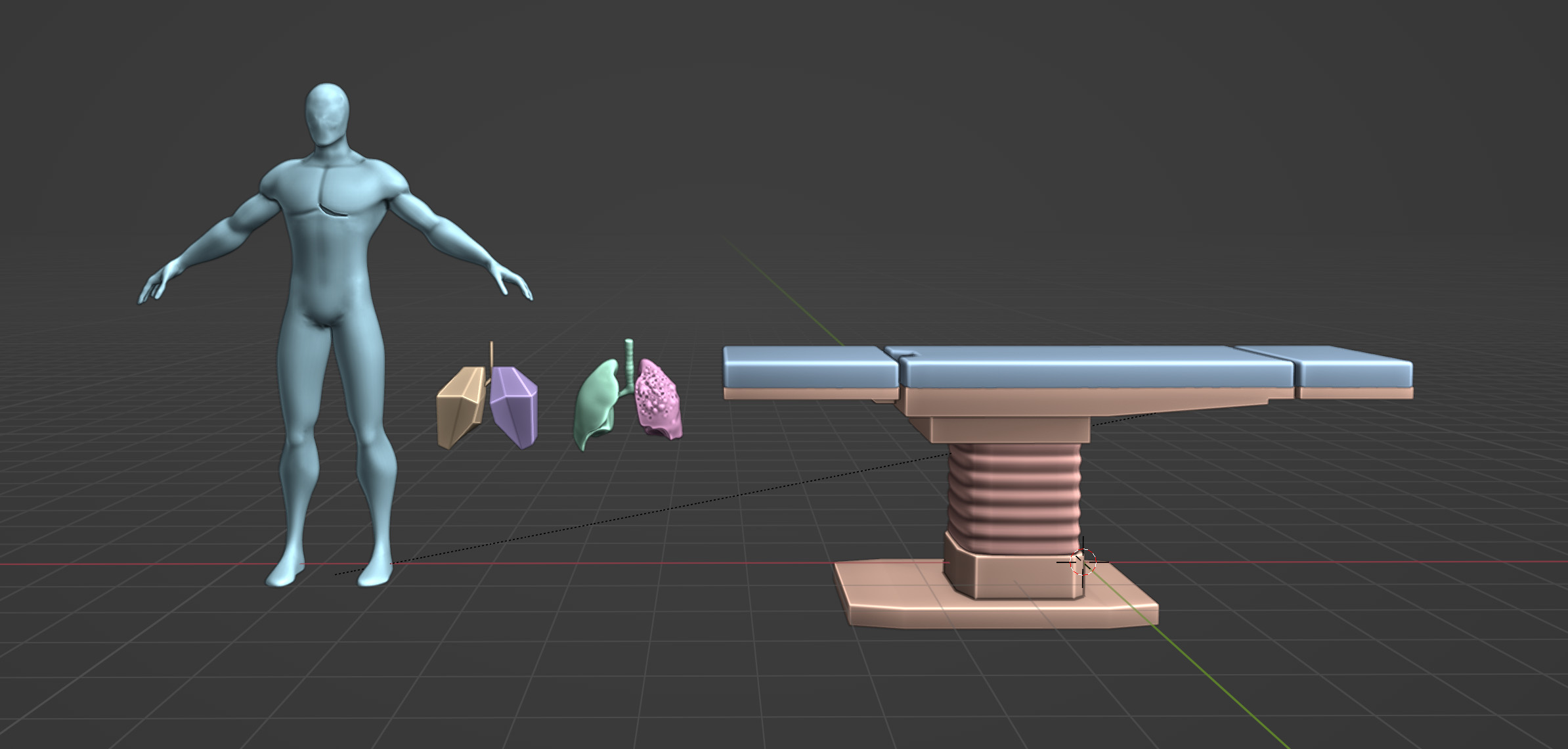
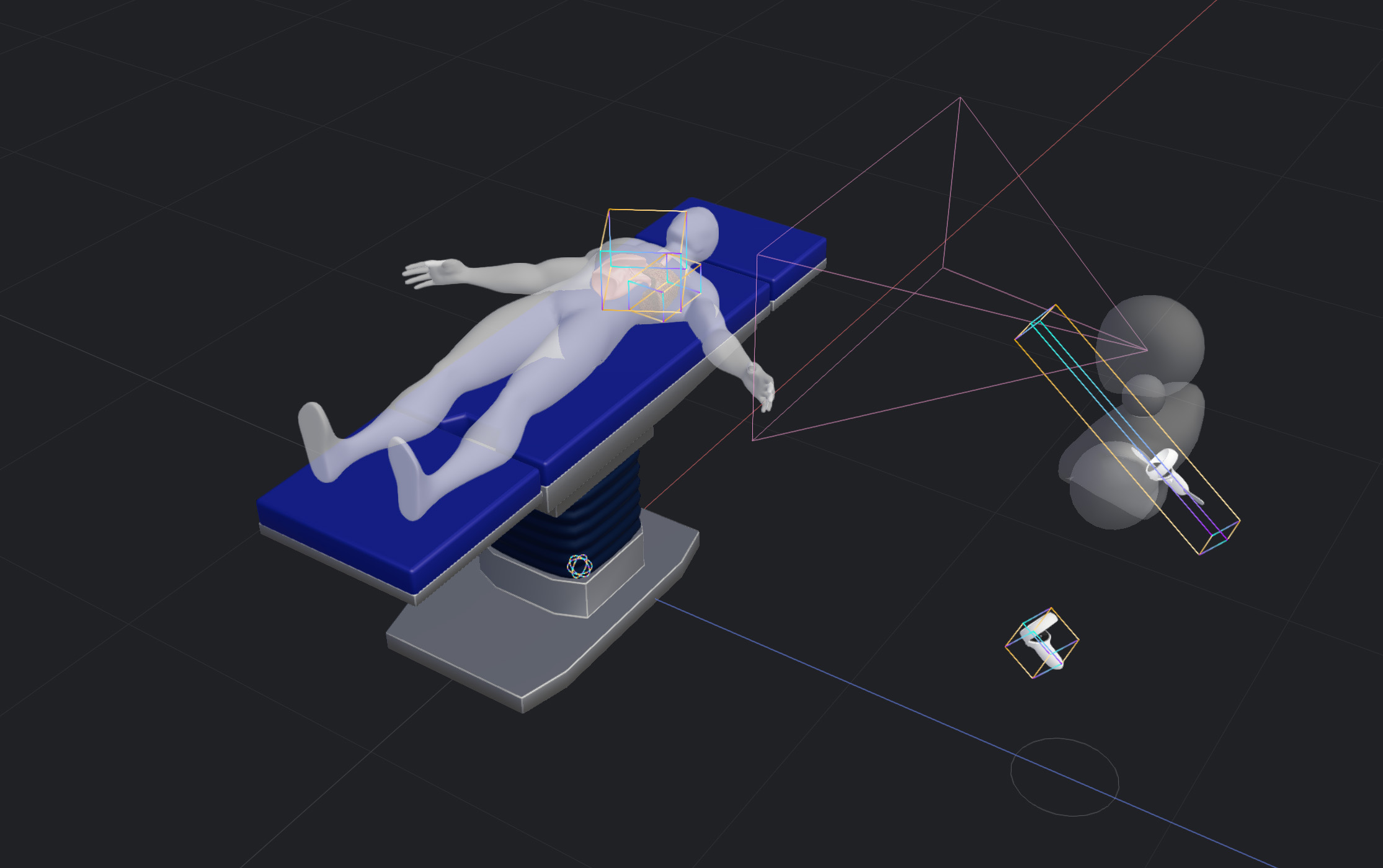
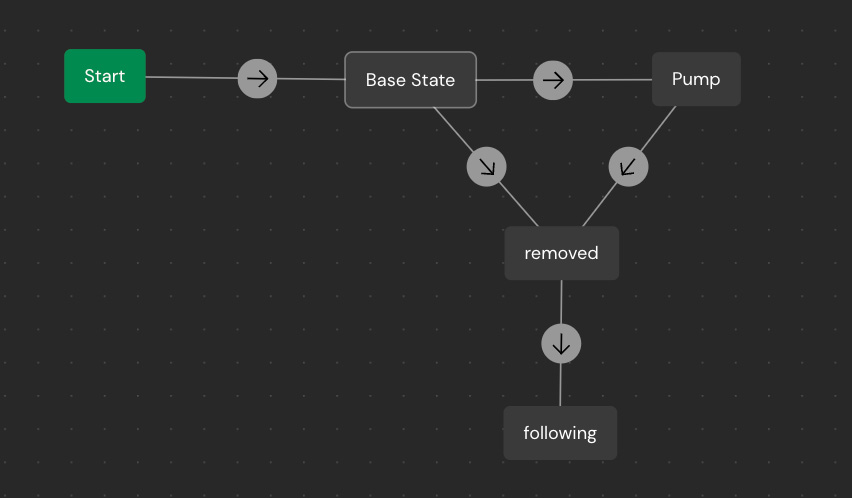
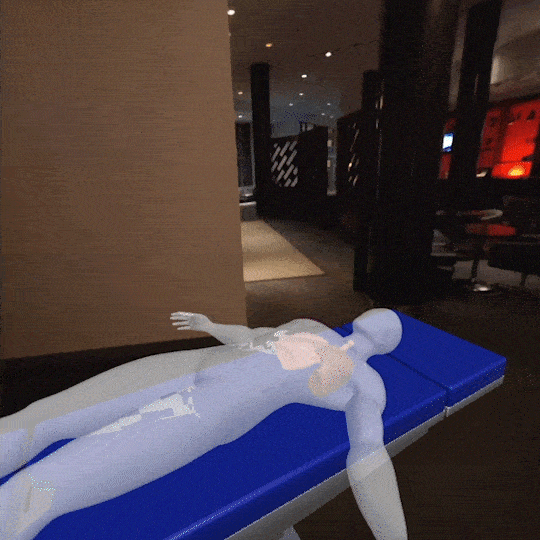
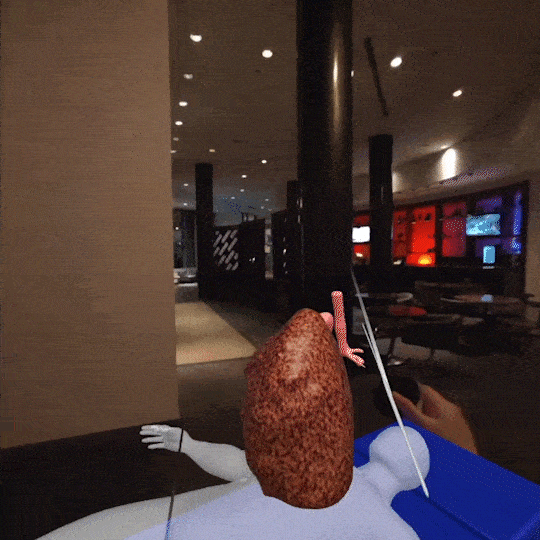
Our vision for Dr. Trust extends beyond pre-surgery consultations. Providing patients with a visual representation of their current condition is an incredibly powerful experience, and that can be expanded to all medical diagnoses. By expanding our application to encompass a wide range of medical conditions and procedures, Dr. Trust empowers patients with greater understanding and agency in their healthcare journey.
Even after setting up our project’s real-time collaboration to work seamlessly when we tried it out, there was a lot of lag or even disconnection when we ran it for judges while everyone was also on WiFi. However, we were able to pull through and present our project to the best of our abilities given the circumstances.
Each one of us naturally fell into a role in an attempt to keep things afloat: Steven was on maintenance, getting the judge’s headset to connect properly after each use, Amanda was guiding the demo when it did work, Vikram and Coco pitched to the judges while maintenance was happening, and I fell into the role of being the line of communication between the pitchers and maintenance, hustling back and forth to make sure everyone was on the same page.
While I didn’t get the chance to step into an entirely foreign role during the hackathon like some of my other teammates, I was still able to explore a new software and learn how to prototype spatial designs, behaviors, and interactions within Bezi. Working with a software that is still in its beta version came with its own set of challenges, but the experience of figuring out why something was behaving a certain way and finding workarounds to bugs was incredibly rewarding - special thanks to Julian Park and Daniel Marqusee for helping us troubleshoot!
Even though this was my first hackathon, I can already see how easy it is to fall into the trap of sticking to the same familiar roles every time. I’m grateful for the opportunity to have explored something new, and moving forward, I hope to push myself even further out of my comfort zone. Maybe I’ll even be a dev next time around :)
I like to approach each new experience with a sense of curiosity and enthusiasm, and this hackathon was no exception. It’s natural to feel a little scared or overwhelmed when you’re trying something new, but it can be equally as exciting to discover what these new experiences have to offer. Setting foot into MIT and meeting all these industry leaders, PhD students, working professionals, and others from vastly different backgrounds was an incredibly intimidating but exciting experience.
I experienced some of the best teamwork and dynamics with my team, “4 Trojans + 1 Tree”, and I have made some of my most favorite memories with them. Within the span of just 5 days (2.5 days of hacking!), we went from being strangers to friends who have known each other for a lifetime. There wasn’t a single moment where I felt overwhelmed or stressed out during the hack, even through the all nighters and mind numbing bugs, simply because I had so much fun working with them.
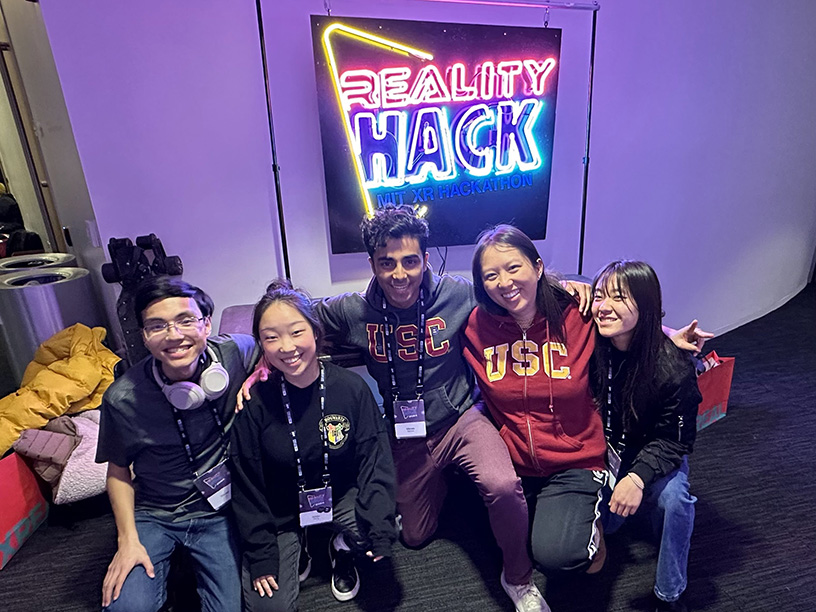
first day of the hackathon!
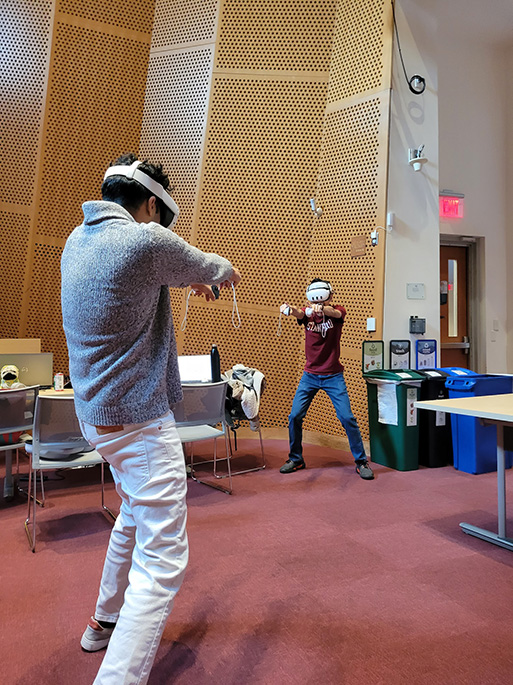
caught the moment our devs finally got multiplayer working on the quest!
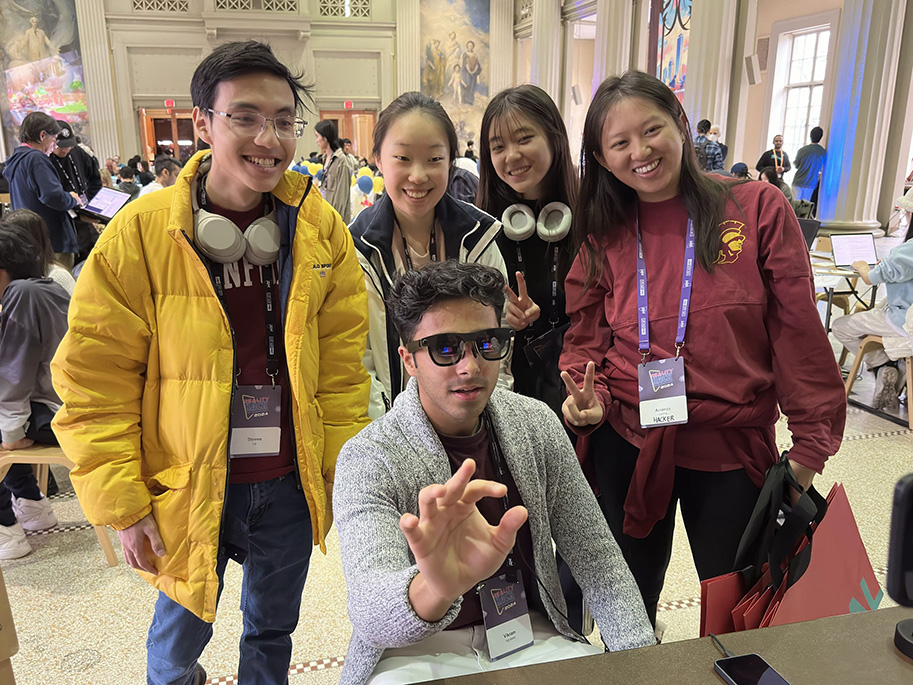
we got to try on xreal's air 2 ultra glasses :0
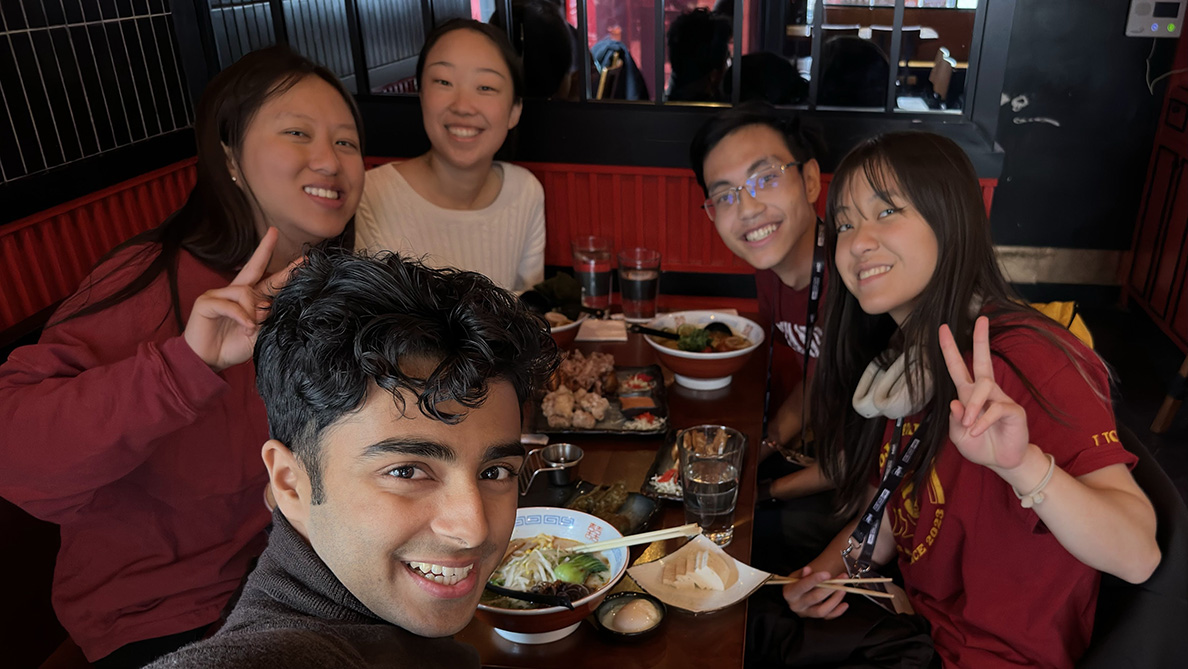
celebrating the end of the hackathon with a group lunch in chinatown <3
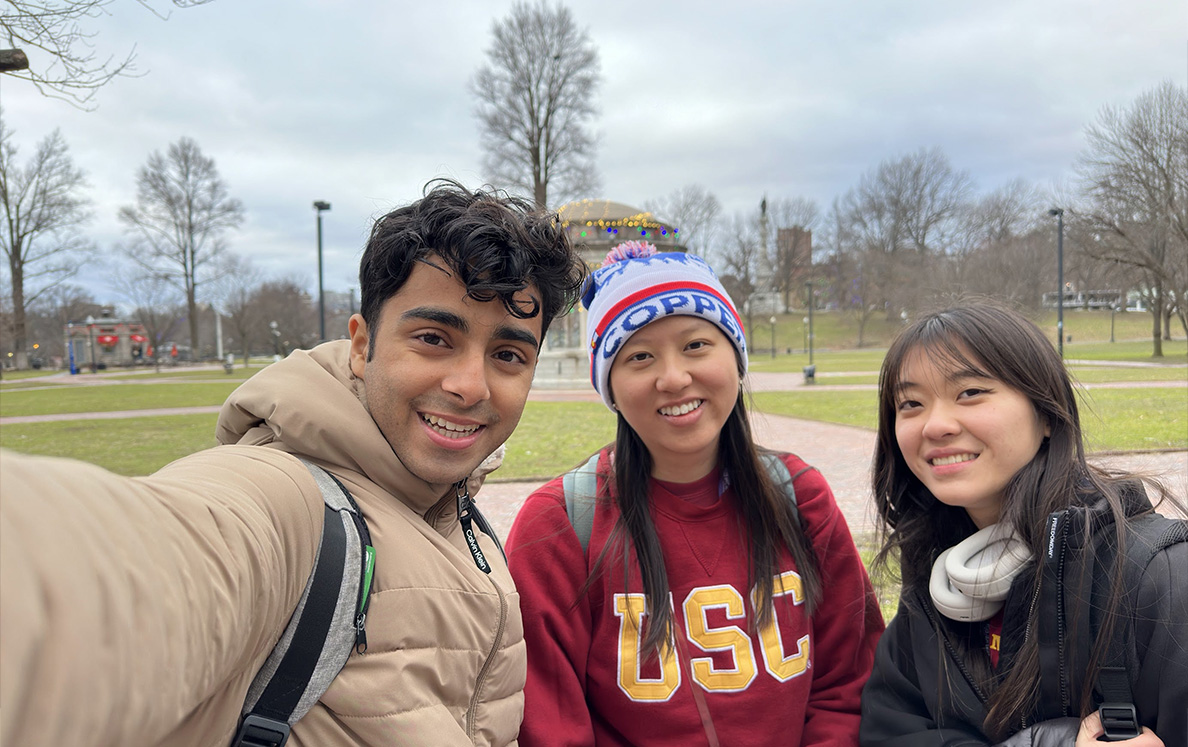
we took the chance to visit boston common, the oldest park in america, right before our flight back!
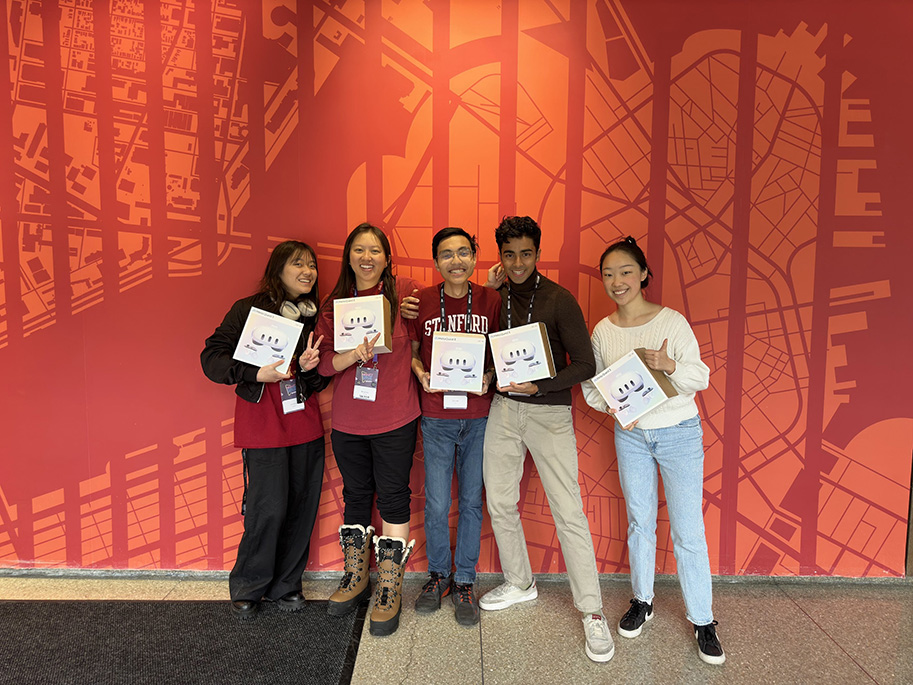
we won quest 3s as a prize for the "best use of bezi"!
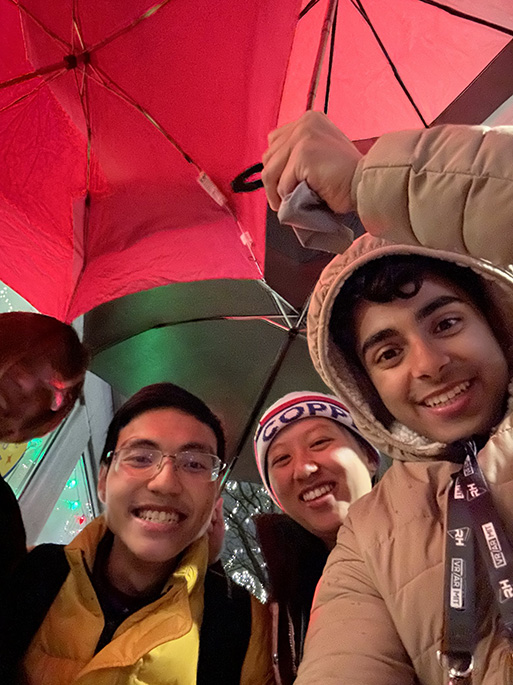
we went out for dessert after the hackathon to celebrate, and it started snowing (my first time seeing snowfall!)
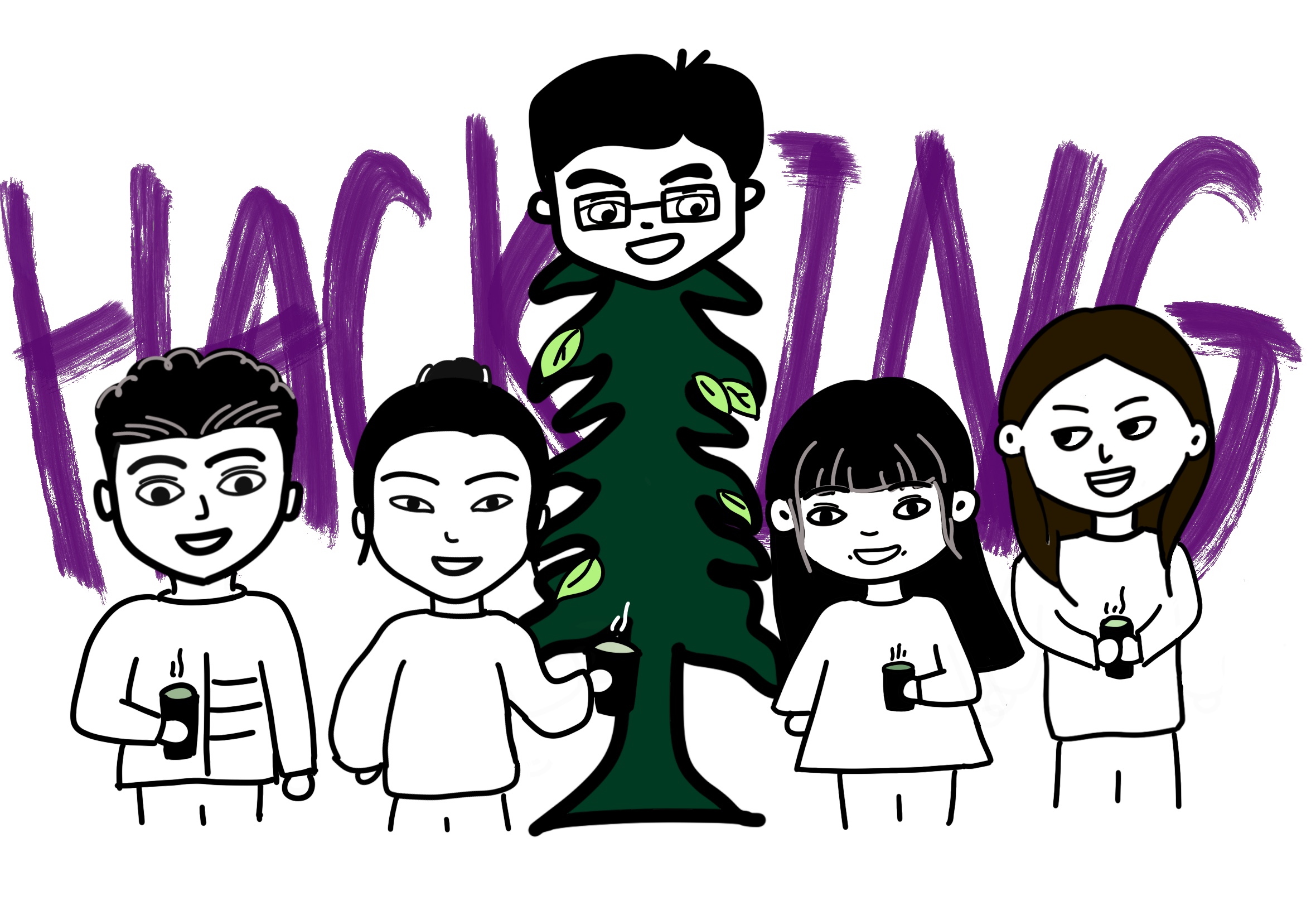
Coco's drawing of us <3